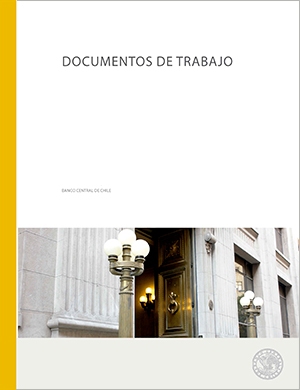Documento de Trabajo N° 1053: An Assessment of the Effects of Monetary Policy Communication in Chile
Research-Papers
Documento de Trabajo N° 1053: An Assessment of the Effects of Monetary Policy Communication in Chile
Autor: Mario González-Frugone , Ignacio Rojas
Description
In recent decades, central banks have increasingly relied on communication as a policy tool. We use linguistic methods to extract the latent information from monetary policy documents in Spanish of the Central Bank of Chile and use this information to reassess the impact of monetary policy surprises on financial markets. As a by-product of this analysis, we present a methodology for analyzing central bank documents in Spanish, construct a sentiment index that captures the policy tilt of each document, and examine whether these documents provide information that can help anticipate changes in the monetary policy rate. The sentiment index is categorized into key economic topics—Inflation, Activity, External Conditions, Financial Conditions, Expectations, and Risk—enabling a detailed understanding of the dynamics behind policy bias. Our findings reveal that monetary policy rate (MPR) surprises have a strong and immediate effect on the yield curve. However, this impact is short-lived and diminishes along the yield curve. In contrast, sentiment surprises in press releases exhibit a weaker, but more persistent effect across instruments. Regarding the minutes, our results suggest that the information they contain is generally already priced in, as sentiment surprises from these documents do not significantly affect the yield curve. Conversely, surprises in the Monetary Policy Report (IPoM) have a positive effect on two-year interest rates, indicating that these reports provide new information that shapes medium-term monetary policy expectations. In terms of anticipation, we find that Central Bank policy documents provide enough information to anticipate policy rate movements.
Documento de Trabajo N° 1053: An Assessment of the Effects of Monetary Policy Communication in Chile
Boxes and graphics

